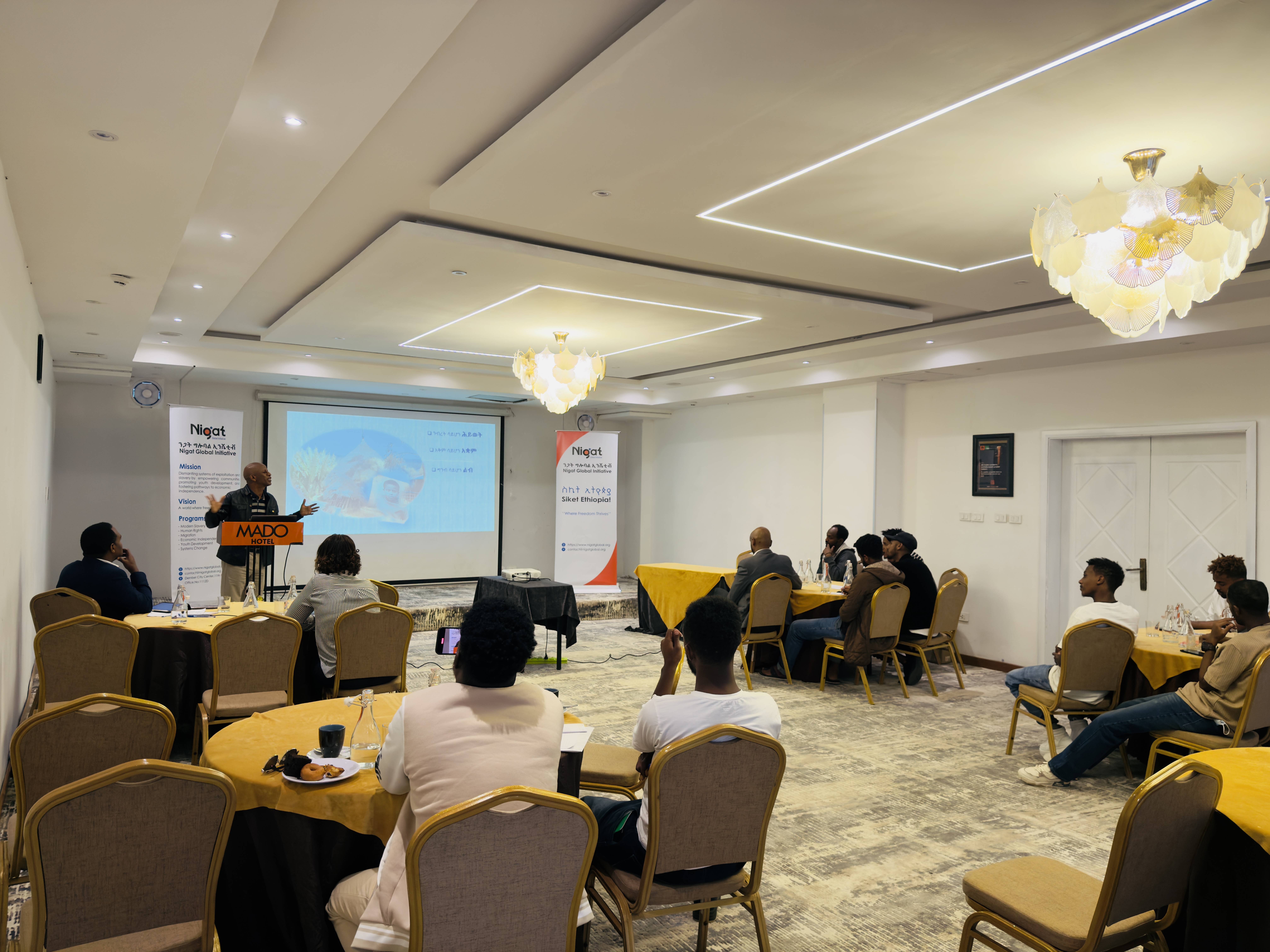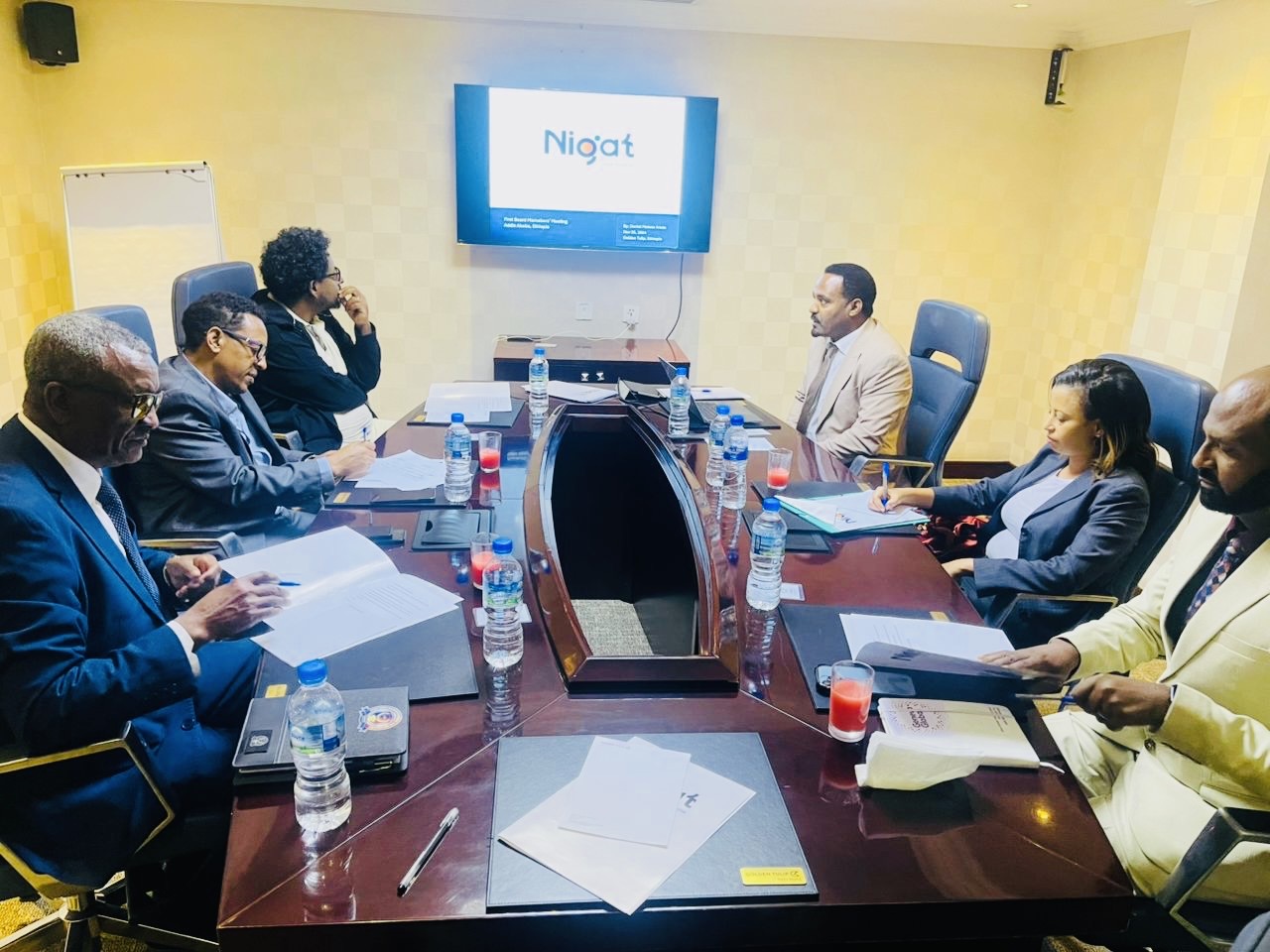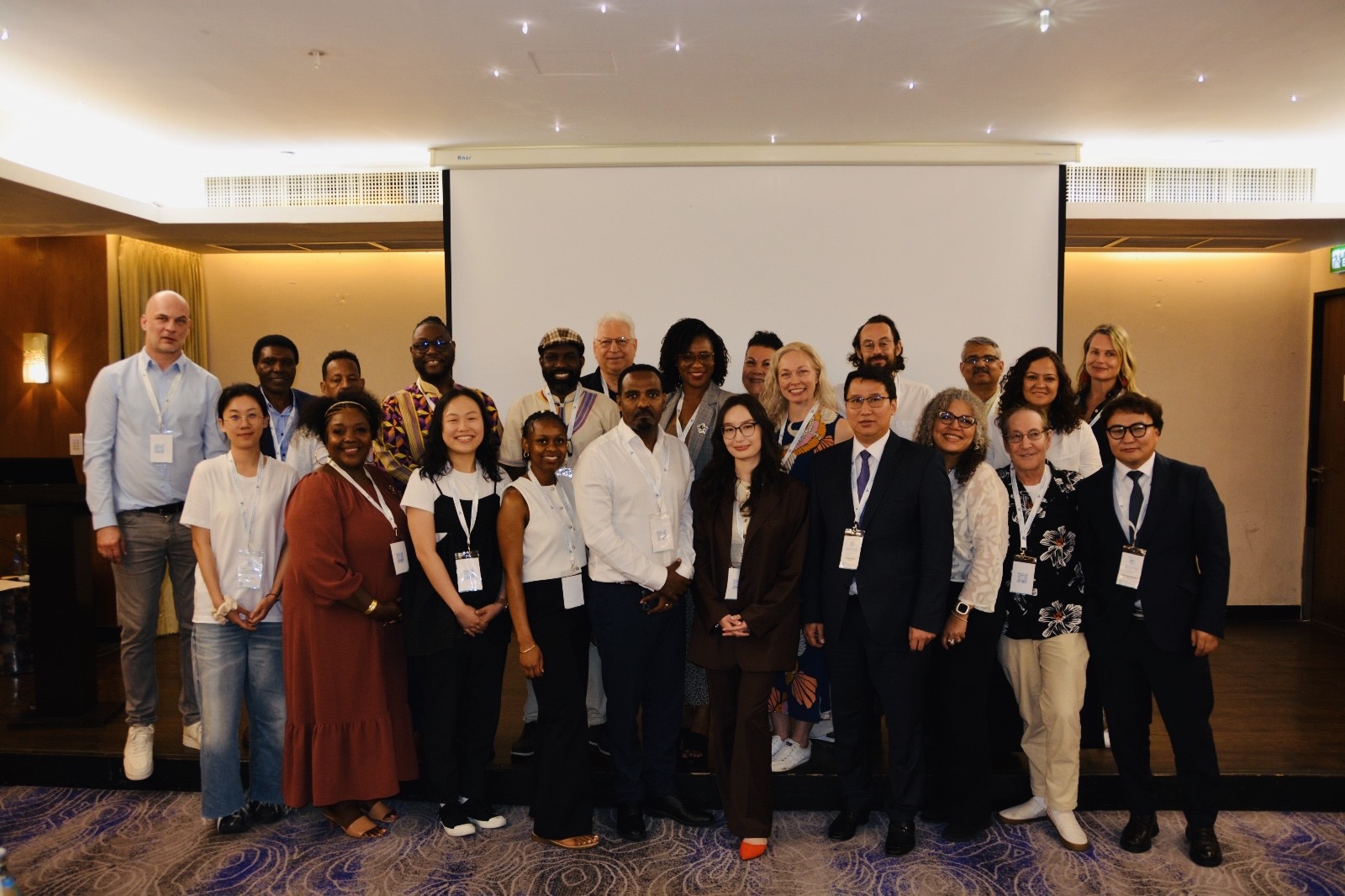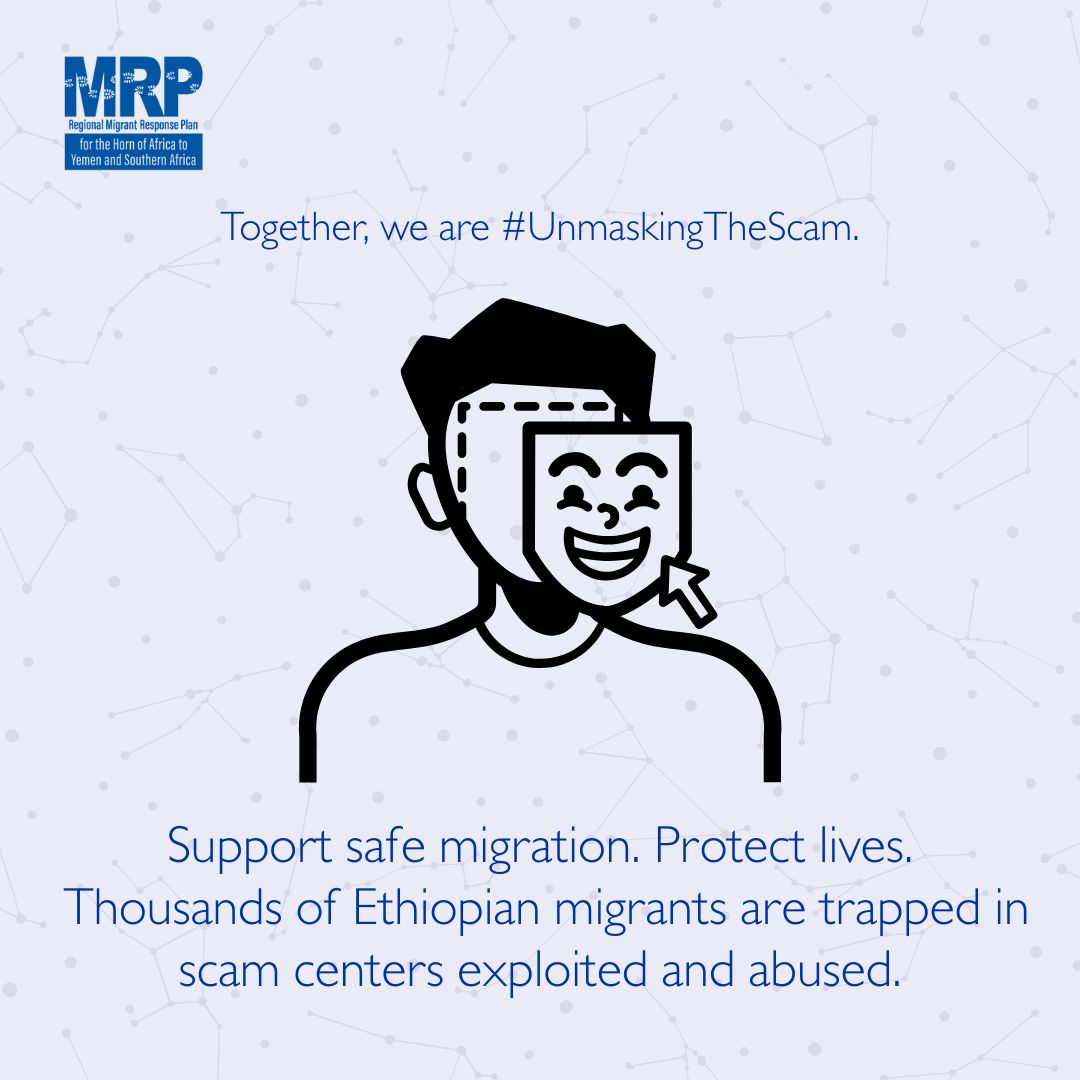As part of GAATW’s efforts to highlight the work of our new members, Trinity Blacklock, intern from GAATW, interviewed Daniel Melese Areda, founder of Nigat Global Initiatives (NGI) in Ethiopia. In their conversation, he describes the organisation’s origins, its survivor-centred approach, and its commitment to systemic change in anti-trafficking work.
Trinity: Thank you, Daniel, for this interview today. As a new member of GAATW, can you tell us the story of how and why NGI was founded?
Daniel: Yes, thank you so much for this opportunity. I am Daniel Melese, founder and CEO of NGI, an acronym for Nigat Global Initiative. I’m deeply honoured to share our work, which is rooted in justice, dignity, African leadership, and survivor-centred transformation. I started NGI after more than a decade of leadership in international anti-trafficking work. It all started when I saw firsthand how local voices, community knowledge, and especially survivors were too often sidelined. NGI was born from both professional experiences and a deep personal conviction that we must centre those who are most affected.
The name Nigat is a local Amharic word meaning dawn, a symbol of hope after the darkness. It reflects our belief in second chances, in re-writing painful narratives, and in the possibility of systemic change that heals and restores.
Trinity: Amazing. It’s really beautiful to see how your name choice fits in with where you started from and what you value. What is the context in which you are currently working? Are there any main issues that you work on with the communities that you’re supporting?
Daniel: First of all, we are rooted in the belief that people most impacted by injustice must be at the centre of the solution. Our mission is to restore dignity, build power, and decolonise the anti-trafficking narrative. Our primary programmes reflect our commitment to anti-trafficking work based on a human rights approach. We support trafficked persons, returnees, and migrants in vulnerable situations, with immediate and long-term care that includes reintegration support, legal aid and sustainable livelihood opportunities, while also addressing root causes to prevent trafficking before it happens. While we do this, we also amplify their voices and advocate for structural reform to end exploitation in all its forms. We also work on mental health and psycho-social support for trafficking survivors because we recognise that healing from exploitation goes beyond physical safety. NGI offers trauma-informed care, counselling, peer-support groups, and crisis intervention, particularly for survivors of trafficking and gender-based violence.
Economic independence is an important aspect of our work because we firmly believe that without income there is no sustainable freedom. By equipping people with dignified livelihoods, we reduce the vulnerabilities that traffickers exploit in the first place. We encourage returnees and youths by providing vocational training, entrepreneurship support, job placement, access to start-up capital, and other services to ensure their livelihoods are stable and dignified.

The other programme we run for trafficking survivors is called Technology for Justice. At NGI we believe technology should serve justice, not oppression. Even though we are in the early stages, we are already helping survivors and targeted communities build their technological skills and access essential tools. In today’s world shaped by technology, no one should be left behind. That is why trafficked persons must be included in the technological transformation unfolding globally, and why we use technology not only for recovery but also for prevention.
We also promote community-based reintegration that reflects our values. For example, a young woman who had been trafficked to Myanmar in search of a better livelihood became pregnant. When she could no longer meet her traffickers’ extortion quota, she was abandoned. So she crossed the border on foot and, with the help of the community, received care from local partners and was referred to us. We provided psychosocial support and covered her delivery costs. Today, she is rebuilding her life as a mother, survivor, and leader.
Additionally, we support survivors from scam centres and those who migrate as domestic workers to the Middle East. We also assist potential migrants & returning Ethiopians, making sure they access the care, protection, and opportunities they need to rebuild.
Trinity: That’s really interesting. I love how, at every step, you emphasise working with the community and understanding their needs, while also engaging with supporters and survivors and truly listening to them. That actually leads me into my next question: how do you incorporate into your work the perspectives and learnings of the communities you engage with? In your case, that would be survivors of trafficking. Since GAATW works specifically with women, I’m also particularly interested in how you integrate the perspectives and opinions of women as you engage with these communities.
Daniel: Yeah, I think that’s a very important aspect of our work. We are a survivor-focused organisation; so at NGI, survivor leadership is not symbolic but structural. This means survivors inform how we design our programmes, how we communicate publicly, and how we measure success. We involve them not just in storytelling, but in strategy, government engagement, and advocacy.
Some of our staff are survivors themselves. They lead peer support, help shape our reintegration model, and engage with policymakers. In fact, one of our board members is a survivor as well. This demonstrates clearly that survivor leadership at NGI is not symbolic but build into the structure of our organisation. For us, survivor leadership means shifting power to those who have lived through injustice. They are not only invited to speak about it but are also empowered to lead the response. They are fully involved in every part of our work, including programme implementation, strategy development, governance, and organisational direction.
When it comes to feminism and women’s involvement, we define it as “power with” not “power over”. In our work, this means creating spaces where women and girls, especially survivors, can heal, lead, and advocate without fear. We examine how policies affect women differently; we invest in mothers, returnees, and those with layered vulnerabilities, such as trafficked women with disabilities or those who gave birth in captivity. We provide training and funding to women, and most importantly, we listen to them. Crucially, we foster consistent sisterhood because we know that systemic change is not possible without collective care. For us, the focus on women is integral to every part of the work.
Trinity: Yeah, that’s amazing and really important. It’s great to see that you’re able to incorporate that so thoroughly throughout your programming. In GAATW, we remember you shared that you conducted a ground-level assessment on Ethiopian women being trafficked to call centres in Southeast Asia. I was wondering if you could tell me a bit more about that project and what has come out of the research?
Daniel: That was really eye-opening for us. Even though NGI is a young organisation, some of our team members have over a decade of experience working in the anti-trafficking sector. As soon as we registered and began designing our programmes, the issues in Southeast Asia came to our attention. As you may know, traffickers are targeting young, educated youth, not just from Ethiopia but from other African countries as well. They specifically seek those who can operate computers, so the traditional narrative of migration being mostly low-skilled is becoming outdated. The trend shows a significant shift in trafficking patterns.
What we did was work with returnees who had escaped scam centres. Our allies in Bangkok supported them and referred them to us, and we then conducted an assessment. We interviewed them; their stories were heartbreaking. The level of exploitation, the way they were moved, the false promises of legitimate jobs, and the quotas they were forced to meet to scam individuals – initially in the West, and now increasingly in Asia and Africa – were staggering. These scams were organized and operated under the cover of company-like structures.

The research was conducted with fifteen scam center survivors, and the findings were really shocking. We found that around 60-70% of them were educated to at least to the level of a first degree. Most of them had been working and were seeking better salaries, which they were promised. The scamming process was very convincing and appeared close to the truth. They were interviewed and even given written exams. So in their minds, it seemed like a legitimate hiring process, but they ended up being scammed. If they didn’t meet the quotas or criteria set for scamming individuals, they were subjected to various forms of abuse, including verbal, physical, and sexual in scam centres.
When they escaped these scam centres, they were referred either to government shelters in Bangkok or to other organisations providing shelter services. This initial assessment that we made will soon turn into formal research. We are currently discussing this with interested stakeholders, including the UN Human Rights Offices in different regions and other organisations to ensure the research is useful for survivors, organisations involved in the sector and policymakers.
In the meantime, we launched a social media campaign called “Unmasking the Scam”. It has five parts and five local radio spots. According to reports from the local radio, over 650,000 individuals listened, which was really encouraging for us. We engaged ethically with survivors, allowing them to share their stories on local FM radio and making them active participants in this campaign.
Our approach is twofold: pushing for rigorous research while also raising awareness and educating communities on the ground, which is vital for prevention. We are using the data we gather for larger events as well. For instance, at Addis Ababa University which organised an international event where we were invited to speak. Overall, our work combines policy advocacy, awareness-raising, survivor engagement, and efforts to promote better research across Africa.
''We also see the risk of tokenisation, which means being invited to the table but not being heard when sharing uncomfortable truths. These are the realities we navigate while staying rooted in our values''
Trinity: I’m really glad to hear that, and I’m very interested in how you’ve focused both on larger research and on community-level education. I think that’s really important. I’m happy to see attention being brought to such a critical issue. So, after conducting this assessment, what are some of the main dynamics and biggest challenges in the current context that you’ve identified and are currently working on?
Daniel: We face multiple risks and challenges, from limited funding for unapologetic work, like challenging dominant narratives, to the emotional weight of supporting survivors in real-time crises. Just last week, we visited a survivor who had given birth to a beautiful baby girl. The emotional weight of supporting individuals who, in pursuit of a better future, have lost everything and now carry responsibility for another life, is not easy. It’s a real challenge. Beyond securing funding and clarifying our vision, we also need to support our team to have the courage and strength to manage these challenges.
We also see the risk of tokenisation, which means being invited to the table but not being heard when sharing uncomfortable truths. These are the realities we navigate while staying rooted in our values. We operate in a global system that often prefers polished narratives of survivor-centred impact. At times, there is pressure to soften our message to make it more palatable to political actors, donors, or mainstream institutions, but we remain committed to the truth. We will not water down the reality of trafficking or erase the voices of those living it.
Our greatest challenge is not a lack of vision or strategy, but the global silence when African youth are trafficked or enslaved abroad. We speak up even when it is inconvenient and work even when it is unfunded, because we are driven by our convictions. It is a multilayered struggle, but we are committed, and progress is happening.
''Being part of GAATW means standing in solidarity with those who believe it is not charity, but “standing with”, not speaking for. It is a space where we can think boldly, act collectively, and reimagine what justice can look like across borders. It is also a space to learn, to contribute, and to be reminded that we are not alone.''
Trinity: I really appreciate how you highlight the emotional labour involved in this work. It shows that you are genuinely working with these communities and standing with them, rather than using their stories without their presence. It really reflects the way you build community. Thank you for sharing that. I was also wondering, as a new member of GAATW, what are you envisioning or hoping to achieve through this collaboration for NGI?
Daniel: I first encountered GAATW in 2016 or 2017, during my time working with over twenty-five grassroots organisations in Ethiopia. At that time, the Secretariat played a powerful role in shaping how we understood migration and anti-trafficking. Bandana and two other GAATW staff provided the training, and I still remember how hands-on, feminist, survivor-centred, and unapologetically honest it was. That approach challenged me, changed me, and the impact has stayed with me.
So, when we registered NGI, GAATW was one of the first networks we applied to. We knew this was a space that wouldn’t ask us to dilute our truth or reframe our pain into donor-friendly language. Here, our experiences as a national, African, or Global South organisation, and as survivor-led or survivor focused actors, are not background noise. They are central to what you do.
For us, the strengths of GAATW are not only its global reach or its values, but also its clarity, its care, and the solidarities it fosters. And by that, I mean practical solidarities, not performative ones. Being part of GAATW means standing in solidarity with those who believe it is not charity, but “standing with”, not speaking for. It is a space where we can think boldly, act collectively, and reimagine what justice can look like across borders. It is also a space to learn, to contribute, and to be reminded that we are not alone. For example, as soon as we conducted our assessment, we shared it on the network. We received so many responses, and the conversation truly mattered. We feel that our messages are heard and that there are people ready to listen and collaborate.
This is how we envision our partnership and membership in GAATW.

Trinity: That’s amazing, and I’m really glad that GAATW can offer that support to you. Because of this community we are building together, we are able to learn about the incredible work you’re doing. You’ve mentioned that NGI is a newer organisation, so looking towards the future, what do you see as the next steps for NGI? Where do you think your programming will head, or what issues do you plan to continue to tackle?
Daniel: Yes, we’ve a very clear vision. In ten years, we don’t just want to run projects, we want to change history. This means we don’t just aim to mitigate trafficking, but to end the conditions that make it possible through prevention and systemic change. Our goal is complete transformation. We want to challenge the exploitative migration system and advocate for protection.
Over the next ten years, we aim at targeting 1.1 million individuals directly, over 4 million indirectly, and 5 million through systems change. We know this is bold, but this is where we’re headed. Our programmes focus on combatting trafficking, human rights, migration, economic independence, youth development, and systemic change. It’s not just about building NGI as an organisation. We’re creating a larger movement where we can question the status quo and introduce new models to the system.
Trinity: Amazing. We really look forward to seeing NGI accomplish this, because it’s incredibly important to challenge all of this. You mentioned that NGI focuses on the systemic issues that underlie the symptoms that lead to trafficking and other larger problems. What do you see as the core, baseline systemic issues that NGI needs to address in order to prevent trafficking?
Daniel: One of the biggest challenges we face is securing political will. Trafficking crosses borders, and as an organisation working in the Global South, our politicians have their own priorities. While I commend the Ethiopian government for opening up, revising policies, creating new structures, and working closely with civil society organisations, there are still areas that need improvement. That is why NGI works with the government to strengthen political will and embed anti-trafficking commitments into a system of accountability.
In the Global South, governments tend to be strong, and resources and conditions can be conducive to change. For organisations like NGI, system change means achieving political wins that results in stronger structures to combat trafficking and mobilising local knowledge to lead solutions. Groups in vulnerable situations have enormous potential to drive solutions if properly supported.
These pieces are interconnected: when they all work together, it creates systemic change. That is why we collaborate with other civil society organisations to amplify collective voices. We engage survivors in decision-making, not just in storytelling but in programme design, governance, and in shaping how we frame our work. At the governmental level, we advocate for resource allocation and strong collaboration with civil society. When all of this comes together, we can tackle the systems that directly or indirectly allow trafficking to exist. Our approach brings these threads together: mobilising resources, securing political will, leveraging local knowledge, and ensuring survivors remain at the centre of the process.
Trinity: Great, thank you for explaining that. I don’t really have any more questions. Is there anything else that you would like to share with us?
Daniel: I would actually like to invite our fellow members to ask uncomfortable questions in their countries. Where are the changes? Where are the impacts? What are the true goals of our work? There is a lot of well-intentioned, impact-driven work out there, but collectively we must pause and ask: is it truly working, and for whom?
At NGI, we constantly challenge ourselves with this question to ensure that whatever we work on, it leads to tangible results that make a real difference in people’s lives.

Trinity: That’s really important and I thank you for bringing that up. I think that it is a really important step in anti-trafficking work to ask if we are actually doing any work and the result or outcomes of that work. Thank you. Is there anything else you would like to mention before I end the interview?
Daniel: I have a question for funders: are you willing to fund new ideas? Will you move beyond the standard three- or four-year proposals that, while important for demonstrating organisational capacity, don’t always allow space for ideas that start from zero? There are funders who are open-minded and willing to engage in these conversations, and I see GAATW as playing a crucial role in pushing this forward and holding that space.
For us, being part of GAATW adds value and helps us drive change on the ground: from prevention to protection to systemic reform. I want to sincerely thank you for the opportunity to share NGI’s perspective in this interview. I recognize that GAATW has often highlighted long-standing organisations and well-known figures, so having NGI’s voice included is deeply encouraging for us.
Trinity: Well, thank you for taking the time to sit down with me, Daniel. I really appreciated our conversation and the opportunity to hear more about your work and your plans in the future, and within our alliance.

